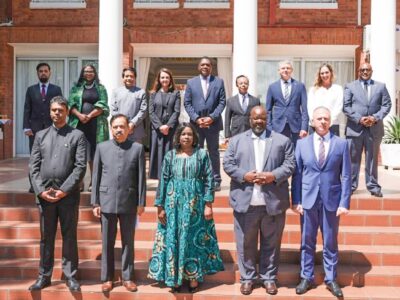Charles Chanda, leader of the United Prosperous and Peaceful Zambia (UPPZ), has urged African leaders to rethink their diplomatic strategies regarding agreements signed with Western and Middle Eastern nations.
Chanda stressed that these agreements should deliver tangible benefits to African economies rather than serve as mere symbolic gestures.
Speaking at a media briefing in Lusaka held at Lusaka Hotel on Saturday, Chanda highlighted that while such agreements often enhanced international relations, they frequently lacked practical frameworks that support sustainable development and knowledge transfer.
“It is vital for our leaders to negotiate not only for trade deals but also to learn crucial skills that enable us to process our own raw materials into finished products,” he asserted.
Chanda stated that Africa’s vast natural resources should be a key driver of the continent’s economic growth.
He argued that African countries were losing significant value by exporting unprocessed materials, a practice he described as “economic colonialism.”
“If African leaders are serious about enhancing local economies and creating jobs, they must prioritise agreements that foster local processing industries,” Chanda said.
He further noted that instead of merely signing deals that result in the export of resources at minimal costs, African leaders should aim to secure expertise, technology and investments in processing facilities.
WARNING! All rights reserved. This material, and other digital content on this website, may not be reproduced, published, broadcast, rewritten or redistributed in whole or in part without prior express permission from ZAMBIA MONITOR.












Comments